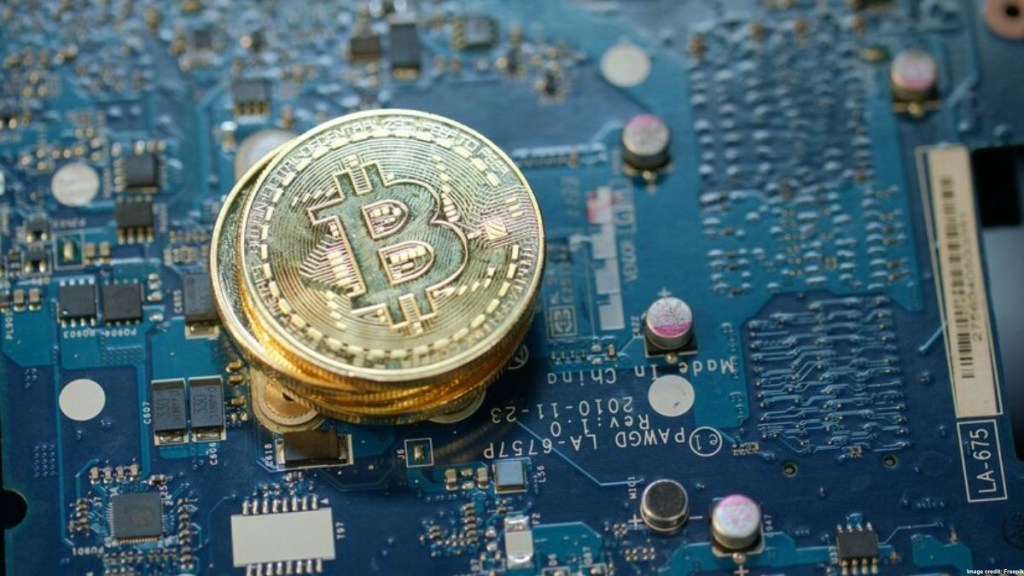By Rajagopal Menon
The notion that cryptocurrencies, such as Bitcoin, lack intrinsic value and are backed by nothing is a common argument often put forth by proponents of traditional assets. They argue that gold’s value stems from its rarity and utility in electronics. However, this argument overlooks the subjective nature of value and fails to recognize the unique properties and instrumental value that cryptos possess. In this article, we will explore the fallacies behind the concept of intrinsic value and shed light on the intrinsic value of crypto, specifically Bitcoin.
Subjectivity of Value
All value is subjective, stemming from the desires, goals, and objectives of individuals. Humans assign value to things based on their limited circumstances, knowledge, and perspectives. What holds value for one person may not hold the same value for another. The subjective nature of value renders it purely subjective rather than objective.
We perceive gold as valuable today due to its scarcity, durability, divisibility, portability, and societal trust; its value is not derived from any intrinsic property. Gold’s value is attributed to its usefulness in satisfying human desires, particularly as jewelry and in electronics. The causation goes the other way: gold is valuable, and therefore we choose to express our status through jewelry made from it.
However, if one were stranded on a deserted island with truckloads of gold, its value would be essentially meaningless. In such circumstances, the individual would prioritize basic necessities like water, food, and tools over gold. This highlights the subjectivity of value and how it varies based on one’s circumstances.
Market Price as an Approximation of Value
Given the subjective nature of value, the market price becomes our best approximation of value. The market comprises individuals who make buying and selling decisions based on their perceptions and preferences. These subjective realities, when aggregated, converge into an objective truth represented by the market price. In this sense, markets function like distributed computing systems, assimilating subjective perspectives into a single actionable variable.
Verifiable Scarcity and Trust in Money
Verifiable scarcity serves as a reliable proxy for the truthfulness of money. Money, as a medium of exchange, represents the sacrifices individuals make by dedicating their time and effort to earning it. In turn, they expect their money to enable them to claim commensurate sacrifices from others. The trust factor is crucial in this dynamic, as the market’s belief in the value of money ensures its purchasing power.
Bitcoin’s Unique Properties and Instrumental Value
Bitcoin, in particular, offers several properties that outperform gold in terms of instrumental value. It shares gold’s store of value property but improves upon it in several ways. Bitcoin has finite scarcity, yet it can never face a shortage due to its infinite divisibility, with 1 BTC consisting of 100 million Satoshis. Moreover, Bitcoin’s digital nature enables extreme portability and resistance to seizure.
Contrary to the misconception that intrinsic value is necessary, Bitcoin’s instrumental value lies in its ability to store monetary capital indefinitely while allowing instant transmission of value across the globe. The trust factor, often overlooked, is the mechanism provided by the market, and Bitcoin’s network of users serves as its backing. The protocol’s monetary properties, permissionless access, and consensus rules that prevent counterfeiting contribute to Bitcoin’s instrumental value.
Another proxy for the intrinsic value of Bitcoin is its hashrate. “Hashrate” refers to the computational power required to solve complex mathematical problems and generate new blocks. These problems involve generating random strings of numbers, with millions of guesses needed to find the correct answer. Bitcoin miners compete to solve these hashes and earn the block reward in BTC. A higher hashrate results from more machines operating on the network, increasing the overall computational power. Over the past decade, Bitcoin’s hashrate has steadily risen, enhancing the security of its blockchain by making it more challenging for malicious actors to control the majority of the network. This strong hashrate has contributed to Bitcoin’s unparalleled track record of never being hacked, ensuring a secure network.
In conclusion, the conception of intrinsic value, often used as a critique against cryptocurrencies, fails to recognize the subjective nature of value. All value is subjective and depends on the individual’s goals and desired ends. In this context, the market price represents the closest approximation of value. Bitcoin, with its unique properties and instrumental value, challenges the traditional notions of intrinsic value. Its ability to store value indefinitely and facilitate instant global transactions provides clear utility and is highly valued by a growing number of individuals and institutions. The decentralized nature of Bitcoin, combined with its limited supply and predictable emission rate, adds to its appeal as a store of value and a hedge against inflation. Furthermore, the increasing adoption and acceptance of Bitcoin by mainstream financial institutions and corporations further validates its instrumental value. Lastly, what is the premium to be placed on a network that is hackproof? While critics may argue that Bitcoin lacks intrinsic value due to its intangible nature, the reality is that value is ultimately determined by market participants who recognize and assign value based on its usefulness and potential for future adoption. Therefore, the concept of intrinsic value falls short of capturing the true value proposition of cryptocurrencies like Bitcoin.
The author is vice-president, WazirX

